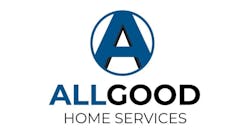Latest from Marketing
Sponsored
Fraud costs the nation 5% of GDP annually. It likely costs plumbing contractors more. Most plumbing company owners simply refuse to talk about it until they learn how prevalent it is. No company is too small to fall victim to fraud, which means every business owner should take preventative measures. In this second of a two-part series of 28 best practices you can take to limit your exposure, the final 13 best practices are shared.
16. Use GPS
Most contractors have some kind of GPS system on their vehicles. There are numerous advantages of this. One of the most significant is reducing the likelihood that employees will use company trucks for side jobs since GPS will show vehicle location history.
17. Check Vehicle MPG
An old trick of dishonest employees is to meet a spouse at a gas pump and fill up a personal vehicle at the same time the company truck is topped off. Have employees record odometer readings when filling up and spot check fuel efficiency. If the miles per gallon suddenly drops off, this might reveal a technician fueling personal vehicles on the company dime.
18. Watch for Changes in Employees
Know your employees. Be alert to changes. If their spending seems to increase or exceeds what is possible on their incomes, this is a potential sign of fraud. If their personality seems to change, it might be guilt over fraud.
19. Require Vacations
There is no such thing as an essential employee. Require everyone to take vacations. Accordingly, everyone should cross train a backup. Many fraud schemes have been identified when the guilty employee was on vacation. When someone refuses or resists taking time off, it might be an indicator of fraud, not excessive dedication.
20. Follow Up on Turndowns
Another trick of fraudulent employees in the field is to diagnose a problem, present the repair, and suggest that they can return after hours or on the weekend to do the work for less. Accordingly, beware of plumbers with too many repair turndowns. Follow up every now and then to ensure that the repair was not made off the books.
21. Use a Payroll Service
Another truck of fraudsters is padding payrolls with phantom employees and/or overtime. This is hard to execute with small contractors, but as a company grows it becomes a possibility. This risk can be reduced by using a payroll company, separation of responsibilities, and/or checking payroll several times a year.
22. Create a Written Company Privacy Policy
In your employee handbook, include a written privacy policy that gives you as the employer the right to search computer files, trucks, lockers, etc. Do not let employees think they can hide fraud behind a right to privacy.
23. Mark Tools
Tools have a tendency to grow legs and walk away. You can reduce the potential of this by painting tools a unique color that makes them easy to identify. You can also permanently inscribe the tools as company property. Finally, there are options to use RFID chips for more expensive tools that alert pawn shops and police that the tool is stolen.
24. Install Security Cameras
Fraud occurs when dishonest or desperate people think they can get away with it. While security cameras may seem like big brother is watching you, they are fraud prevention tools. Cameras can be used to monitor entry points, inventory cages, and anywhere cash might be handled.
25. Implement a Fraud Reporting System
The most prevalent way for fraud to be identified is employee tips. Yet, employees who are not 100% sure fraud is being performed hesitate to say anything because they don’t want to make a false accusation. Others simply don’t want to be seen as snitches. For these reasons, set up an anonymous system for fraud reporting.
The Service Nation Alliance created an anonymous fraud reporting hotline for members. Posters and stickers can be placed around the office alerting people to the hotline. The mere knowledge that it is available is a deterrent. There are third party hotlines available that perform a similar service.
26. Conduct a Fraud Audit
If you suspect fraud has occurred, but cannot pinpoint it, you might hire an outside service to conduct a forensic investigation. A fraud examiner can also look over your operation and help you minimize the risk of fraud. You can find them through the Association of Certified Fraud Examiners.
In the world of plumbing, no one is better on this issue than Mike Bohinc from Keeping Score, Inc. He can be reached at: 440/708-2583, email [email protected].
27. Prosecute
When fraud is found, there is a tendency to hush it up. In some cases, contractors have avoided prosecuting employees in a desire for restitution. Unfortunately, once fraud occurs, recovery is rare. Remember, this is deliberate, premediated theft. Prosecute to the fullest extent of the law and a message will be sent.
28. Tell Stories
If you have had fraud perpetrated against you, caught the guilty party, and there were consequences, make this part of your company lore. Share the story with employees from time to time, but always with the message that the employee was caught, as they always are, and had to pay a price, as they always will. Good stories about the risks and consequences of fraud are some of the best preventative measures there are.
If you lack examples on your own, talk with other contractors at national meetings. Bring their examples back. Tell your team that they won’t believe what happened to this other company and how it impacted the guilty employee when finally caught.
Contracting is hard enough. Don’t make it harder than it needs to be. Join the Service Roundtable and take advantage of a world of resources designed specifically for service contractors in plumbing, heating, cooling, electric, and remodeling. Learn more at www.ServiceRoundtable.com or call 877/262-3341 for a look behind the paywall.
Matt Michel | Chief Executive Officer
Matt Michel is CEO of the Service Roundtable (ServiceRoundtable.com). The Service Roundtable is an organization founded to help contractors improve their sales, marketing, operations, and profitability. The Service Nation Alliance is a part of this overall organization.


